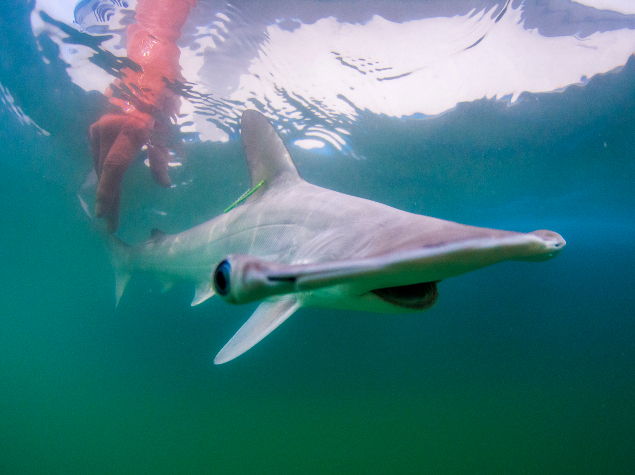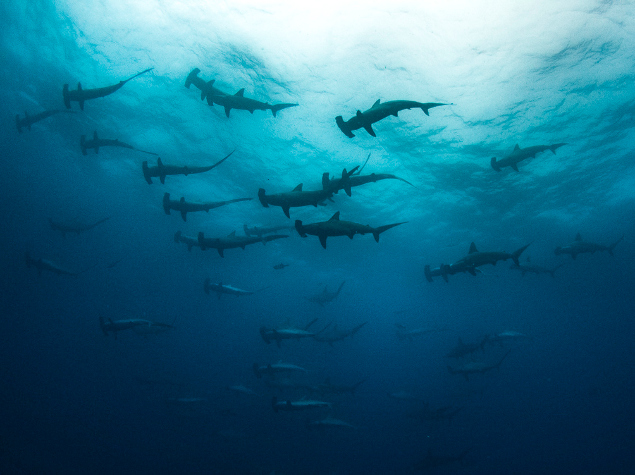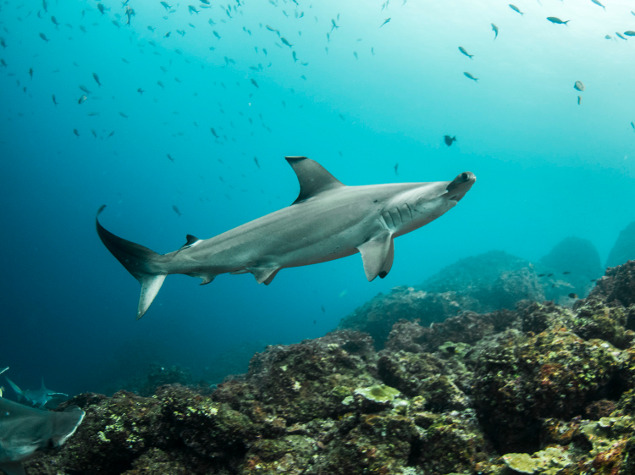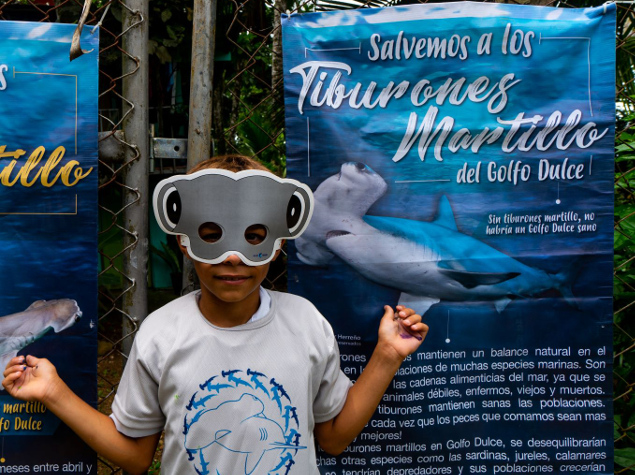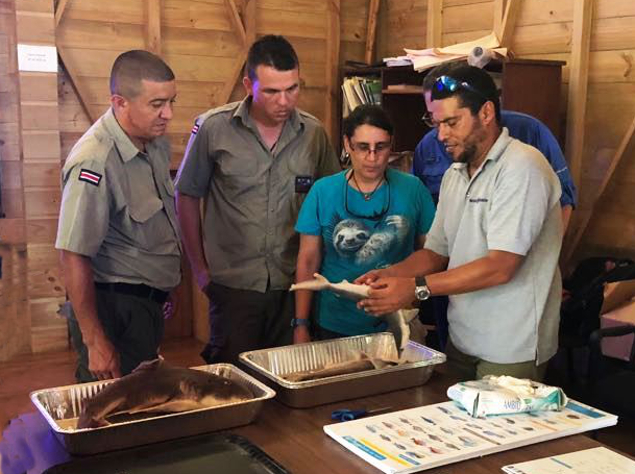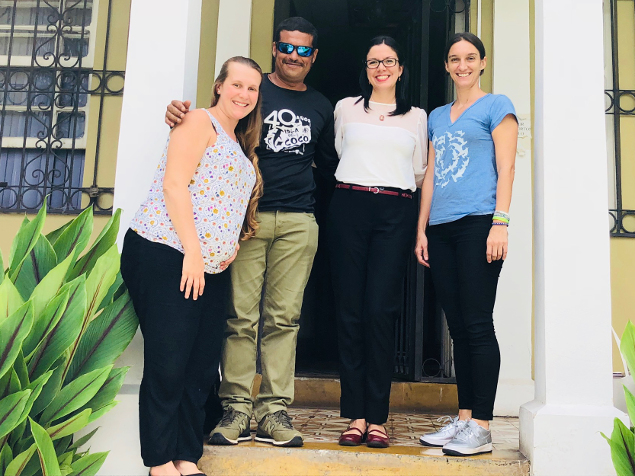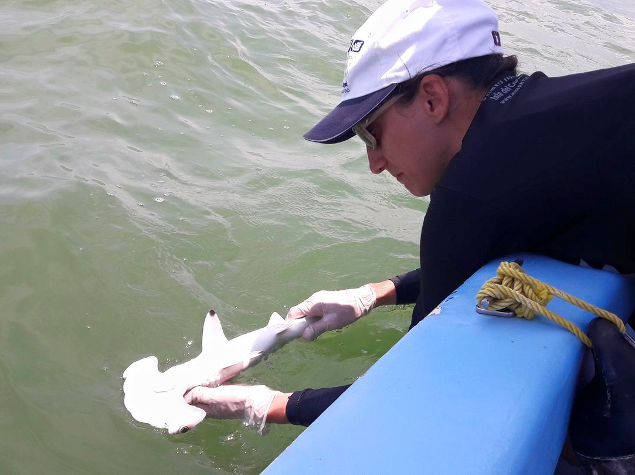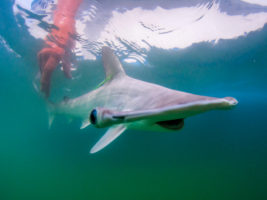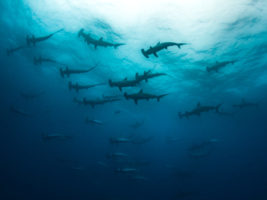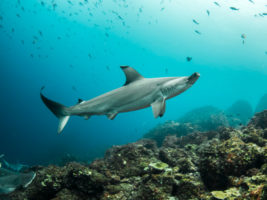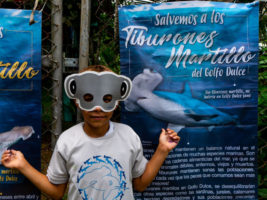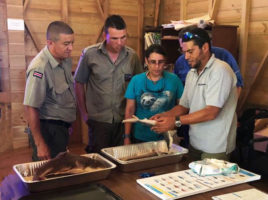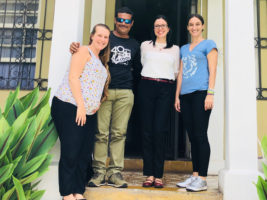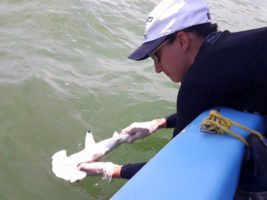Conservation of scalloped hammerhead shark in Golfo Dulce, Costa Rica: community and science generating an effective management
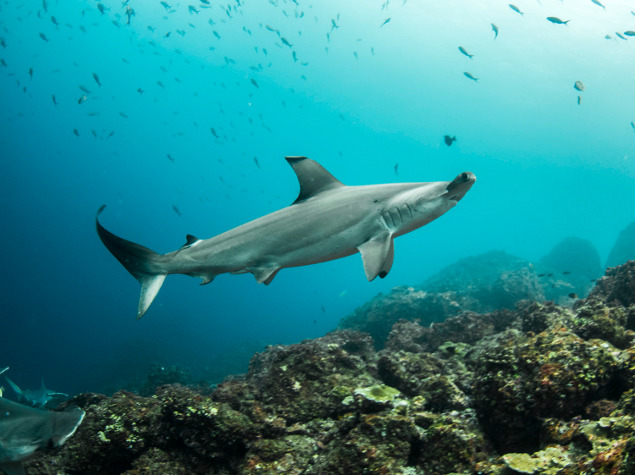
The scalloped hammerhead shark is protected in oceanic islands of the Eastern Tropical Pacific. However, for decades, lack of conservation efforts in coastal and nursery areas (considered as critical habitats) left the future population source vulnerable.
Golfo Dulce is located in southern area of Costa Rica and has an area of 700 km2. In 2010, it was declared Marine Responsible Fishing Area. Thanks to this, trawling shrimp boats and gill nets are prohibited, and the fisheries are regulated. It is also a shark nursery area identified by Misión Tiburón. Artisanal fishermen generally don´t focus their efforts on sharks, however they are an important bycatch. They represent almost 40% of the total catch from the artisanal bottom lines, and S. lewini represented more than 50% of them.
The aim of the project is to improve the conservation of sharks in the Eastern Tropical Pacific by means of the protection of Golfo Dulce. This project is divided in two sub-objectives:
- Implement the strategy for the protection of the scalloped hammerhead shark- population, elaborated and approved by local stakeholders and Government Institutions.
- Involve the local communities in the protection of the shark, by developing educational and training programs.
The association will implement the educational and training programs proposed by the strategy to support the local fishermen during the rainy season, when the bottom long lines are not allowed in the entire Gulf. At this period, females enter the Gulf to give birth and the abundance of hammerhead is higher. The strategy includes trainings of fishermen about aquaculture and touristic projects and educational program for children.
FINAL REPORT SUMMARY (AUGUST 2019):
Within the project period, workshops and meetings have been held with fishers, members of governmental institutions and community leaders. An app, aiming to denounce illegal fishing practices is under development. 18 individuals also followed a diving course, as an alternative income-generation activity.
Meanwhile, educational and sensitization activities have been held implicating nearly 3,000 individuals. Eco-lodges and hotel have also been visited by the NGO team to implicate them in the preservation of the golf. A tour of the sanctuary has been done with a Teletica journalist (the most important Costa Rica TV channel).
The aim now is to offer alternatives to fishing by directing fishers and young people to eco-tourism activities. Also protection and research activities in the region will continue.
This project is partly funded thanks to the sponsorship of a generous donor. If you also wish to support initiatives towards threatened animal species conservation, click here.

